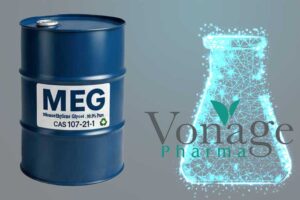When importing active pharmaceutical ingredients (APIs), especially controlled substances like tramadol, documentation is not just a formality—it’s your license to operate. Tramadol is widely used in pain management formulations and is classified as a Schedule IV controlled substance in several jurisdictions. The correct paperwork ensures compliance with regulatory authorities and seamless customs clearance. In this guide, Vonage Pharma outlines all the documentation pharmaceutical importers need to import tramadol ingredients into regulated and semi-regulated markets successfully.
The Global Importance of Tramadol Ingredients
Tramadol hydrochloride is used globally in both generic and branded formulations. According to a 2023 report by IQVIA, over 500 metric tons of tramadol APIs were sold worldwide, with over 65% of that volume consumed in developing markets. The World Health Organization (WHO) lists tramadol among its essential medicines, reinforcing the growing demand for safe and compliant supply chains. However, with rising usage comes stricter scrutiny. Many countries now require importers to provide full traceability and pharmaceutical-grade certification for every shipment of tramadol ingredients.
Core Documentation Required for Importing Tramadol Ingredients
-
Certificate of Analysis (CoA)
The CoA verifies the identity, purity, and physical properties of each batch. Key details include: assay result (usually ≥99%), loss on drying, residual solvents, heavy metals, and microbial load. Vonage Pharma includes a batch-specific CoA for every shipment, signed and validated by our internal QA/QC team in line with USP and EP standards.
-
Certificate of Origin (CoO)
Required by customs in many countries, the CoO states where the tramadol ingredients were manufactured. Vonage Pharma produces its APIs in Türkiye, leveraging customs agreements across CIS, MENA, and EU markets.
-
GMP Certificate
Proof that the API was manufactured under Good Manufacturing Practices, issued by either the Turkish Ministry of Health or a certified third party. This is critical for import registration in regulated markets.
-
Drug Master File (DMF)
Some health agencies require a DMF Open Part to be submitted for product registration. This includes: API synthesis route, quality control specs, and stability data. Vonage Pharma provides DMF access on request, including for markets like Brazil (ANVISA), Mexico (COFEPRIS), Saudi Arabia (SFDA), and the EU.
-
Material Safety Data Sheet (MSDS)
Also known as a Safety Data Sheet (SDS), it outlines chemical safety, hazard classifications, first aid, and storage recommendations. This is required for customs clearance and internal quality documentation.
-
Stability Data (ICH Guidelines)
Regulatory authorities may require long-term (36-month) and accelerated (6-month) stability data to establish shelf life. Vonage Pharma provides ICH Q1A-compliant data for tramadol ingredients to support these requirements.
-
Controlled Substance License (if applicable)
For markets where tramadol is classified as a controlled substance (e.g., USA, Saudi Arabia, UAE), importers must obtain a Controlled Substance Import License. Exporter documentation must match the importer’s license exactly. Any mismatch can lead to shipment rejection or even legal complications.
-
BSE/TSE-Free Declaration
Many European and Gulf countries require manufacturers to declare that they did not use any animal-derived materials in production. Vonage Pharma’s tramadol ingredients are 100% synthetic and BSE/TSE-free.
-
Packaging and Labeling Specifications
Inspectors review packaging documentation to confirm that manufacturers seal APIs properly, label them accurately, and ensure they meet international transport standards. Vonage Pharma offers tamper-evident packaging, Arabic-English bilingual labeling for GCC countries, and batch/expiry markings per local regulatory norms.
-
Halal Certification (Optional)
In Muslim-majority markets like Indonesia, Malaysia, and the UAE, Halal certification can enhance your product’s acceptance. While not mandatory in every market, institutional buyers often request it in tenders. Vonage Pharma offers Halal-compliant production processes and certification upon request.
Common Import Challenges and How to Prevent Them
Even when documentation is technically available, mismatches and inconsistencies can derail shipments. For example, importers in the UAE must ensure that the name of the manufacturer on the invoice, Certificate of Origin, and GMP Certificate match exactly. A minor spelling discrepancy can result in customs delays of up to two weeks. Vonage Pharma performs pre-audit checks on every document set to eliminate such errors before shipping. Vonage Pharma simplifies this process by offering a fully documented, quality-assured Tramadol HCl API, combined with regulatory guidance and fast turnaround times. We don’t just supply ingredients—we partner in your compliance journey.
Country-Specific Regulatory Notes
Each region has unique nuances. For example:
- Mexico (COFEPRIS) requires stamped and notarized original documents for API registration.
- Saudi Arabia (SFDA) mandates Arabic-translated documentation alongside the originals.
- Brazil (ANVISA) requires dossiers in CTD format and typically insists on the DMF submission directly from the API manufacturer.
Vonage Pharma’s regulatory team stays current on country-specific changes and proactively updates documentation formats as needed.
The Cost of Missing Documentation
The WHO states that documentation issues, not product quality, cause 30% of pharmaceutical shipment delays in developing countries. Common errors include unsigned CoAs, outdated GMP certificates, missing import licenses, or inconsistencies between shipping labels and documentation. These issues can delay product registration by 3–6 months, increase regulatory inspections, or result in rejections and re-export penalties. The risks extend beyond delay—they impact your business reputation and cash flow.
Digital Readiness: The Future of API Documentation
An emerging trend among customs agencies is the use of digital portals for API documentation submission. The EU’s CTIS platform and India’s Sugam portal now request uploads of CoAs and DMFs digitally in addition to hard copies. Vonage Pharma provides digitally signed PDFs, barcoded shipping documents, and API traceability records in XML or eCTD format on request.
Why Choose Vonage Pharma to Buy Tramadol Ingredients?
Vonage Pharma delivers fully documented tramadol ingredients to more than 27 countries and supports clients with: 48-hour turnaround on document requests, market-specific regulatory guidance, audit-ready documentation packs, and pre-shipment compliance checks. We manufacture our tramadol APIs in GMP-certified facilities with complete traceability and stability coverage. We also support customs broker coordination and region-specific dossiers, easing the burden on your regulatory team.
Conclusion of Tramadol Ingredients Needs
Importing tramadol ingredients is more than just a logistics operation—it’s a matter of regulatory precision. Pharmaceutical importers must ensure every piece of paperwork is accurate, verified, and compliant with local standards. Vonage Pharma simplifies this process by offering a complete documentation suite tailored to your region’s needs. Whether you operate in LATAM, the GCC, ASEAN, the EU, or CIS markets, Vonage Pharma backs your tramadol ingredients with gold-standard documentation—so you can avoid delays and stay focused on what matters most: delivering safe, effective pain relief to patients.
Contact Vonage Pharma today to request samples, a full documentation pack, or regulatory consultation for your market.







